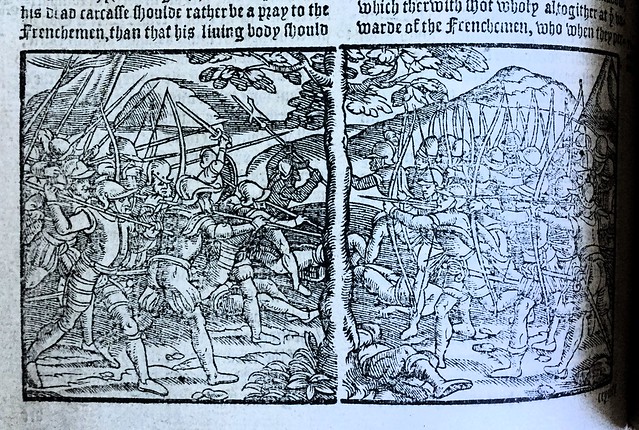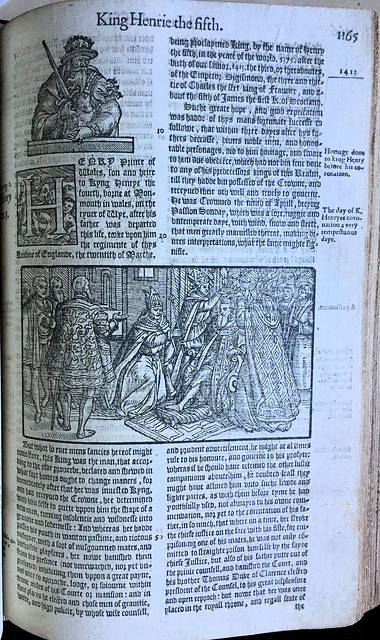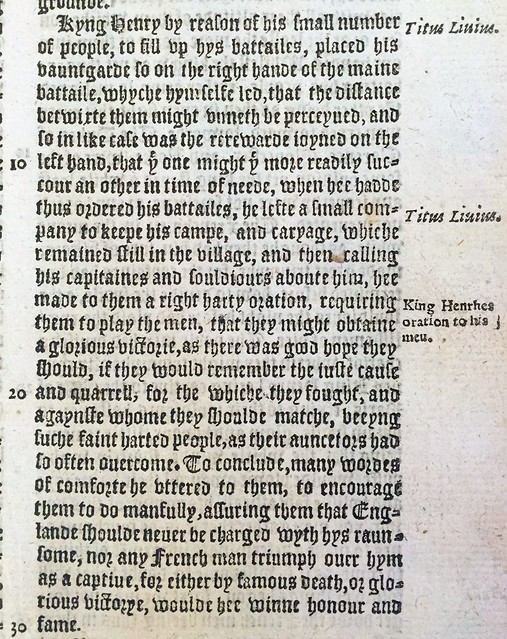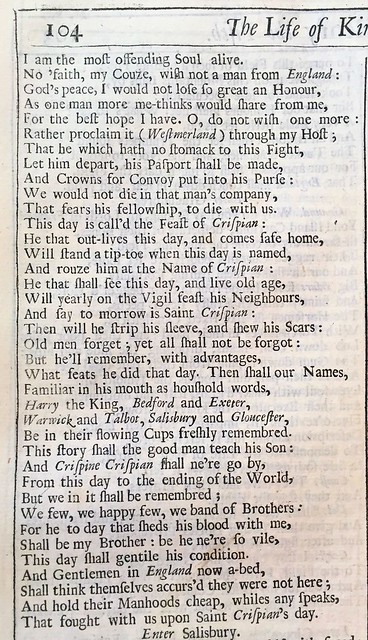This article is more than 5 years old.

If you’re commemorating the 600th anniversary of the Battle of Agincourt this weekend, chances are your knowledge of this English victory comes from Shakespeare’s famous history play The Life of King Henry V.
But where did Shakespeare get his information about the 15th century battle? The major source for Shakespeare’s historical information was probably Raphael Holinshed’s four-volume Chronicles of England, Scotlande, and Irelande. ZSR Special Collections has a first (1577) and a second (1587) edition of this work (Shakespeare likely used the 1587 text).

Holinshed and his collaborators chronicled the history of Britain from the time of William the Conqueror through the then-current monarch, Elizabeth I. The chapter on Henry the Fifth gave a detailed account of the Battle of Agincourt, including “King Henry’s oration to his men.”

Holinshed reports that Henry, before leading his small army into battle,
Calling his capitaines and souldiours about him, hee made to them a right harty oration, requiring them to play the men, that they might obtaine a glorious victorie, as there was good hope they would, if they would remember the juste cause and quarrell, for whiche they fought. . . . many wordes of comforte he uttered to them, to encourage them to do manfully, assuring them that Englande shoulde never be charged wyth hys raunsome. . .
Overhearing one of his soldiers express a wish for more English troops, Henry responds that
I woulde not wishe a man more here than I have, wee are in deede in comparison to the enemies but a fewe: But if God of his clemency doe favor us, and our juste cause. . . there is no man that may or can ascribe the victorie gotte against suche a puissant force to our owne strength and might, but onely to Gods assistaunce. . .
Shakespeare turned this raw material into his fictional Henry’s famous St. Crispian’s Day speech.

Shakespeare’s dramatic version of Agincourt may be lacking in historical accuracy, but it is not hard to see the infrastructure of his play in Holinshed’s text. The historian and the playwright together brought the Battle of Agincourt alive for posterity.

1 Comment on ‘A Source for Shakespeare’s History’
This is fascinating! I have never stopped to think about the reference texts that Shakespeare would have used…